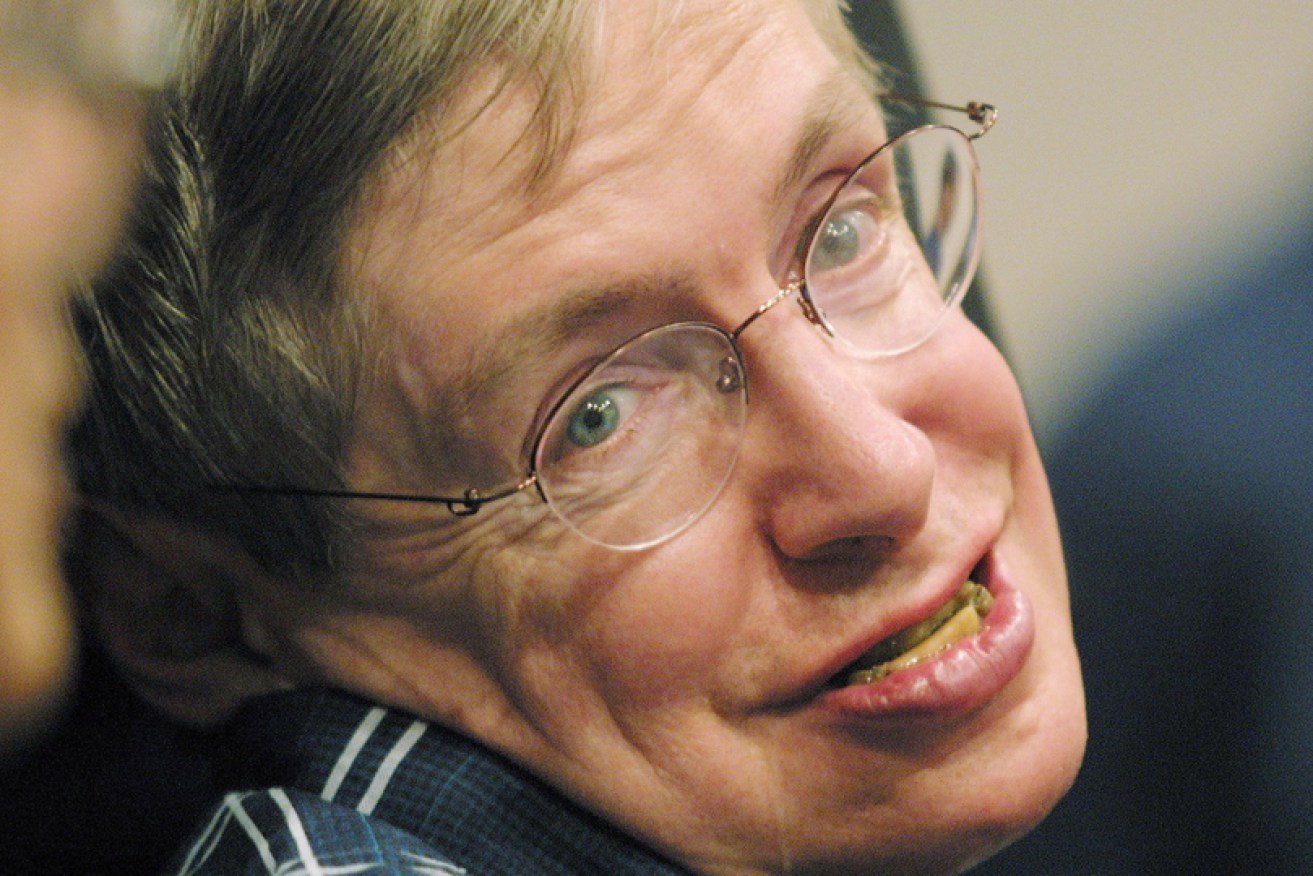How Stephen Hawking became the robot-like voice of the cosmos


Even when he sometimes got it wrong, Hawking bequeathed huge amounts of knowledge to physics. Photo: Getty
As Professor Stephen Hawking’s body slumped ever deeper in his chair and became more contorted – and his identity fused with his robot-like voice – it became easier for his legion of fans to almost imagine that he was in fact a being from the other side of the universe, delivering its majestic secrets.
Following his death on Wednesday at 76, Stephen Hawking – whose A Brief History of Time sold more than 10 million copies – is being remembered as the “world’s rock star scientist” and “cosmology’s brightest start”.
Hawking lived more than 50 years longer than he was meant to: Doctors gave him two to three years when they diagnosed him with motor neuron disease. That was in 1963, when he was 21.
In 1985, he suffered another setback. Doctors offered to turn off his life support after a bout of pneumonia and a treatment that cost him his voice.
Instead, he recovered to write A Brief History of Time – and become the strange, warm electronic voice of the cosmos.
Stephen Hawking’s extraordinary life in pictures
Thirteen times Stephen Hawking met pop culture
Everyone wanted to know what he was thinking. Because it had to be so profound.
In 2012, New Scientist magazine asked the genuinely legendary theoretical physicist what he thought about most (the end of time, surely). Professor Hawking answered: “Women. They are a complete mystery.”
But as a man twice married – under very difficult and somewhat cruel circumstances – Hawking may have just been sharing honestly, and undoubtedly knowing it would make a great headline, and get a few laughs. But it’s also poignant to consider that every mechanical word was produced one letter at a time by moving his cheek.
Clearly the laughs were just as important as the stern warnings about artificial intelligence wiping out humanity, and the perhaps hopeful declaration that one day the human brain will be able to live on indefinitely in a computer.
On reflection, every single hard-won word carries layers of meaning.
The story of his decline, his endurance, his triumph in overturning popular thinking about black holes and the nature of gravity, and the breakdown of his marriage of 25 years to his Cambridge sweetheart Jane Wilde has all been told in an Oscar-winning Hollywood movie, The Theory of Everything. That was in 2014.
By then he was already a pop culture icon. His profile at entertainment site IMDb describes him firstly as an “actor” and “writer” – demoting his position as director of research at the Centre for Theoretical Cosmology within Cambridge University.
Some will treasure the memory of Hawking’s hologram playing poker with Einstein and Newton in a 1993 episode of Star Trek: The Next Generation. He once joked that people thought he was “a character” from The Simpsons, on which he appeared four times, and which he described as the best thing of American television.

Professor Stephen Hawking made several appearances in the long-running animated series The Simpsons.
Already people are dedicating entire articles to his show business career, which included appearances on The Big Bang Theory.
Hawking’s star turn as a physicist began in 1973, as a collaborator on the complex and confounding nature of black holes, which were long thought of as destructive mechanisms, with a gravity so dense that light, once trapped there, cannot escape.
His work, and that of his contemporaries, is exceedingly complex and does not translate easily into short-form journalism – or even in his famous book that struggled to convey its ideas in a digestible form for the everyday reader.
But most people understand his most famous discovery – that black holes aren’t entirely black, and they’re not inescapable.
The tiny amount of radiation that seeps from black holes is known as Hawking radiation.
Since then, many of his ideas have come from rather daring, even desperate, leaps of intuition – by-passing much of a logical argument, in the way a spaceship might one day forgo travelling millions of light years and take a shortcut through a wormhole.
Even when he’s sometimes got it wrong, Hawking bequeathed to physicists with more time on their hands new avenues to explore, and the challenge to fill in the blanks.
Maybe we’ll hear them say his name from time to time.








